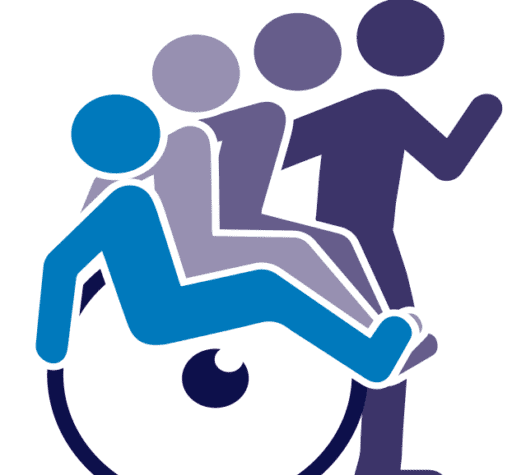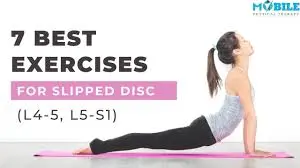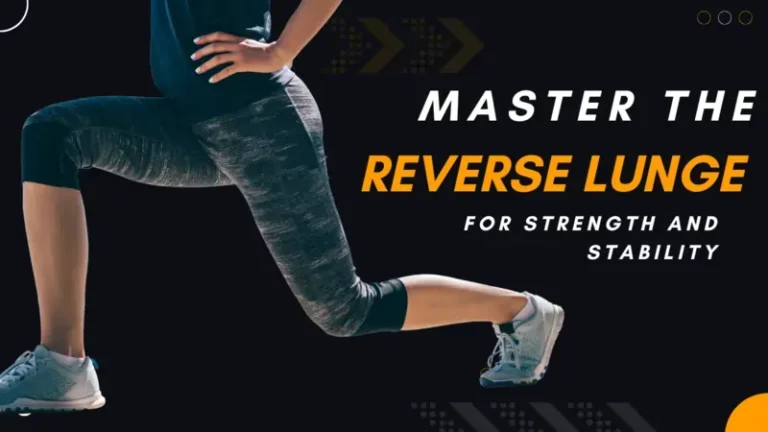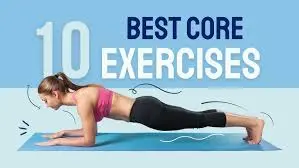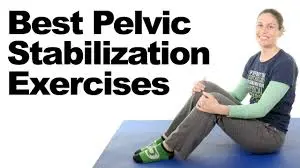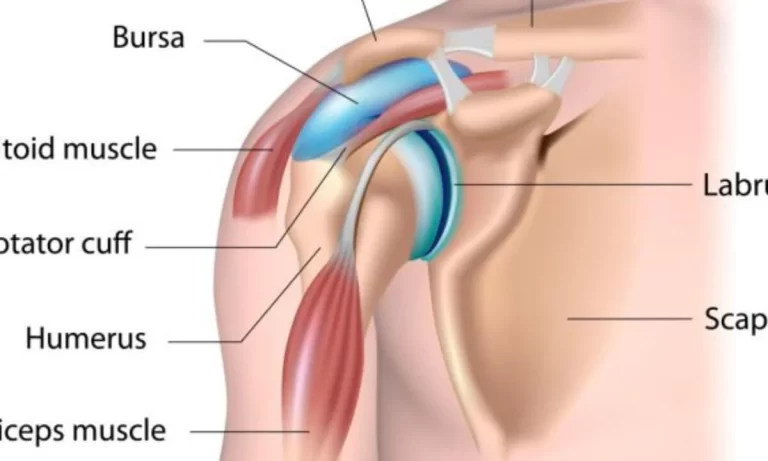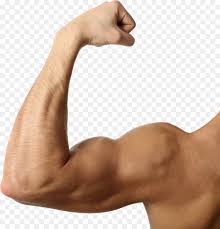7 Best Exercises for Slipped Disc (L4-5, L5-S1)
Table of Contents
Introduction:
Back pain, stiffness, and even radiating pain in the arms or legs might be symptoms of a slipped disc, sometimes referred to as a herniated or prolapsed disc. In addition to medical treatment, some activities can strengthen the supporting muscles, increase mobility, and reduce pressure on the damaged disc.
The top seven exercises for relieving slipped discs and maintaining long-term spine health will be covered in this article.
Benefits of the Top 7 Slipped Disc Exercises:
There are several advantages to doing specific exercises for a slipped disc that go beyond pain alleviation. These exercises are intended to enhance spinal alignment, lessen nerve compression, and gently stretch tense muscles.
Additionally, they fortify the back and core muscles, which improves spine support and guards against additional damage. These exercises can promote general spinal health and lower the chance of recurrent back issues over time.
7 Best Exercises for Slipped Disc (L4-5, L5-S1) Video
7 Best Exercises for Slipped Disc:
Straight leg raises:

A mild strengthening exercise that targets the hip and lower abdominal muscles while reducing impact on the spine is the straight leg lift. This exercise helps strengthen your core and provide support for your lower back by having you lie on your back and raise one leg at a time while maintaining control.
Straight leg raises are particularly helpful for those with a slipped disc because they improve posture, increase muscular endurance, and lessen strain on the spine. Frequent practice can reduce the likelihood of future back issues, increase mobility, and help with pain alleviation.
Knee to Chest Stretch:
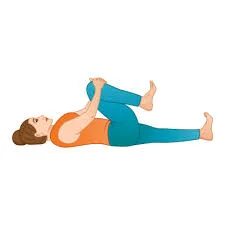
This stretch eases stiff muscles in the hips and lower back and relieves pressure on the spinal discs by gradually drawing one or both knees toward the chest while resting on your back.
Because it reduces pain, encourages relaxation, and enhances blood circulation in the affected area, it is very beneficial for those who have a slipped disc. Regularly performing this stretch might improve mobility and offer calming back pain alleviation.
Bridging:
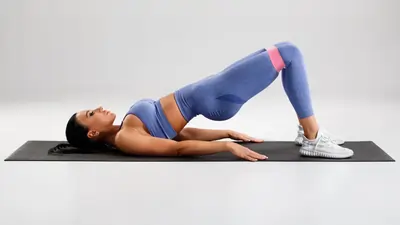
The lower back, glutes, and core muscles—all of which are essential for supporting the spine—can be strengthened with the help of the incredibly powerful exercise known as bridging. This motion improves posture, eases disc strain, and stabilizes the spine.
When done regularly with regulated motions, bridging can help people with a slipped disc by increasing spinal support, reducing pain, and halting additional damage.
Cobra pose:

Cobra position is a mild backbend stretch that increases lower back flexibility and relieves strain on the spinal discs. With your hips and knees pressed to the floor, you gently raise your chest upward while lying on your stomach with your palms beneath your shoulders.
This motion facilitates improved spinal alignment, lessens nerve compression, and pushes the discs back into place. When done frequently with deep, controlled breathing, the cobra posture can help people with a slipped disc feel less stiff, less pain and improve long-term spine health.
Hip extension in prone:

A straightforward strengthening exercise that improves spine support is hip extension in the prone position, which works the glute and lower back muscles. It is performed by lying face down with your arms comfortably at your sides or under your head and your legs straight.
Maintaining a straight posture, slowly raise one leg a few inches off the ground, hold it for a moment, and then carefully bring it back down. This exercise improves posture generally, lessens disc strain, and stabilizes the lumbar spine.
Prone hip extension can be particularly helpful for those with a slipped disc since it develops important supporting muscles without putting undue strain on the back.
Superman pose:

You may perform it by lying face down on the floor with your legs straight and your arms outstretched. Hold the pose for a short while before lowering yourself back down steadily. This exercise serves to strengthen the spine, lower the chance of further injuries, and improve posture in general.
When done carefully and regularly, the superman posture can help people with slipped discs maintain long-term back health, increase muscle endurance, and reduce strain on the spine.
Bird dog exercise:
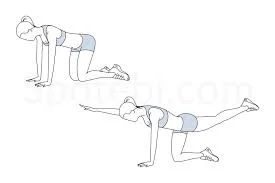
This exercise strengthens the muscles that support the spine, encourages good alignment, and lessens strain on the spinal discs. Bird dog exercise is particularly helpful for those who have a slipped disc because it improves stability, stops excessive spinal movement, and promotes long-term rehabilitation.
Conclusion:
To sum up, the correct exercises can be quite effective in treating a slipped disc and promoting long-term spinal health. In addition to relieving pain, gentle stretches and strengthening exercises like the bird dog, cobra position, hip extension, bridging, knee-to-chest stretch, superman, and straight leg lifts also increase core strength, stability, and flexibility.
These exercises, when performed correctly and regularly, improve posture, lessen disc pressure, and stop flare-ups in the future. To make sure the exercises are safe and appropriate for your situation, always pay attention to your body, move with control, and get medical advice before beginning a new regimen.
FAQs
Gentle exercises like pelvic rock, abdominal bracing, hamstring stretches, and back extension/mini press-up are frequently advised for an L4-L5 disc bulge to reduce pain by increasing stability and mobility. The spine can also be mobilized using a cat-camel stretch. For a customized exercise program, it’s imperative to speak with a physician or physical therapist since workouts need to be tailored to your unique symptoms to prevent making the disease worse.
Conservative methods, including rest, physical therapy, medicine, and injections like image-guided interlaminar, transforaminal, and caudal epidural, are available as treatment options for an L5-S1 disc bulge. If conservative measures are ineffective, surgery could be considered in certain situations.
There is no one “best” exercise for lower back pain, but a number of them are advised, with the Pelvic Tilt being a popular place to start when trying to strengthen your core muscles. Bridges for glute and core strength, Bird Dog for core stability, and Knee-to-Chest Stretches for elongation and tension reduction are additional efficient choices.
Although a slipped disc is usually not serious and may go away on its own in a few weeks, it can become so if it results in symptoms like numbness, weakness in the legs, or issues with the bowels or bladder, since these might be signs of nerve compression. Most instances may be resolved with conservative therapy and lifestyle modifications, but to avoid irreparable nerve damage or long-term problems, chronic or severe symptoms need to be evaluated by a doctor.
Panchakarma, herbal medicines, lifestyle changes, and individualized care are all part of this holistic approach. Ayurveda provides efficient treatments for disc bulging and enhances spine health by treating the underlying cause and encouraging natural recovery.
You should speak with an orthopedic surgeon or a neurosurgeon about a slipped disc since both specialize in spinal disorders and may offer the right care, which may involve surgery, physical therapy, or medication. A neurosurgeon specializes in the neurological system, which includes the spine, whereas an orthopedic surgeon treats the whole musculoskeletal system, including the spine.
Spinal stenosis and degenerative disc disease are two other conditions that can cause lower back pain. By targeting muscular tension caused by strain or bad posture, cupping treatment for back pain might occasionally be helpful.
For individuals with lumbar spine listhesis, spinal canal stenosis, or slipped disc lumbar canal stenosis, this is a modified version of the Surya Namaskar procedure. This will prevent pressure on the bank while providing you with equally effective core strengthening and spine flexibility.
Maintaining your muscles’ strength and activity is crucial, even if you are experiencing some pain. To ease pain, apply ice or heat. Apply heat to your back using a warm cloth, a heating pad on low, or a warm water bottle.
When sitting with a L4-L5 disc bulge, keep your back straight and use a lumbar support cushion or rolled-up towel in the small of your back to preserve the natural curvature of your spine.
To preserve spinal alignment when sleeping with L4-L5 pain, place a pillow beneath your knees on your back or between your knees on your side. Additionally, you may experiment with sleeping in a fetal posture or a reclined position to see which one works best for your particular situation.
Indeed, for many people, an L4-L5 disc bulge may heal and return to normal; however, the recovery period varies significantly based on personal characteristics such as age, general health, and the protrusion’s severity. Non-surgical methods, including rest, physical therapy, painkillers, and even epidural injections to lower inflammation, are used throughout recovery. For long-term stability and recurrence prevention, it is essential to strengthen the surrounding abdomen and spinal muscles. Surgery to relieve nerve pressure could be an option if conservative measures don’t work.
To minimize muscular weakness and stiffness and to aid in the healing process, modest movement and exercise, together with brief rest intervals in a comfortable position, are often advised in place of extended bed rest for herniated discs. For extreme pain, a few days of rest could be beneficial, but spending too much time in bed might impede healing by weakening joints and muscles.
A treatment strategy and early intervention can result in 100% recovery from a herniated disc. A full recovery is more likely if the herniated disc is treated early on. The likelihood that you can recover completely without surgery decreases with the amount of time you spend without therapy following a herniated disc.
For a L4-L5 disc bulge, walking is usually beneficial. However, you should start carefully, pay attention to your body, and stop if you experience any pain. Aim for a fast speed on level ground while maintaining proper posture, since this can enhance circulation and develop supporting muscles without putting undue strain on the spine. But before beginning a new workout regimen for your particular ailment, always get advice from your physician or physical therapist.
Low-impact aerobic workouts like swimming or walking, together with certain stretches and exercises that increase spinal mobility, flexibility, and core strength, are the best ways to treat a slipped disc. The prone on elbows press-up (McKenzie exercise), mild cat-cow stretches, hamstring stretches, and knee-to-chest stretches are a few examples. Before beginning any workout regimen for a slipped disc, always get advice from a physician or spine expert.
References:
- McQuilkie, S., DC. (2023, July 3). 7 Herniated disc exercises for the lower back (Lumbar area). Back Intelligence. https://backintelligence.com/herniated-disc-exercises/
- Barrell, A. (2024, October 1). Safe exercises for a herniated disk. https://www.medicalnewstoday.com/articles/324311
- Chauhan, L. (2025, July 19). 7 Best exercises for lower back pain and disc bulges. India’s No.1 Online Physiotherapy Clinic. https://resolve360.app/best-exercises-for-lower-back-pain-and-disc-bulges/
- Pain Management & Injury Relief, Pain Management & Injury Relief, & By Pain Management & Injury Relief. (2025, March 5). The 7 Best Herniated Disc Exercises – PMIR Medical Center. PMIR. https://paininjuryrelief.com/the-7-best-herniated-disc-exercises/
- Inception. (2024, February 8). The 7 best Exercises for a bulging Disc – Rocket City Chiropractic. Rocket City Chiropractic. https://www.rocketcitychiropractic.com/the-7-best-exercises-for-a-bulging-disc/
- WebMD Editorial Contributor. (2025, July 22). Slipped disk: Exercises for pain relief. WebMD. https://www.webmd.com/back-pain/slipped-disc-exercises-for-pain-relief
